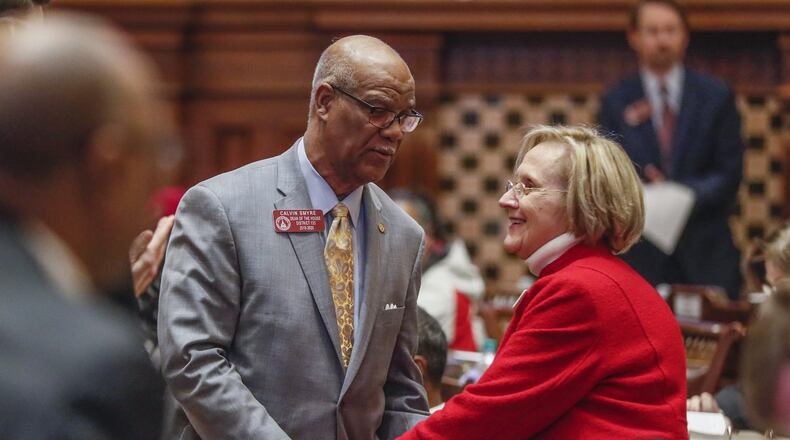A plan to improve staffing, training and accountability in Georgia’s senior care homes won approval Tuesday by a Senate committee after it added new requirements for handling COVID-19.
The Senate's Regulated Industries and Utilities committee unanimously approved its substitute version of HB 987, which would bring dramatic changes to the state's assisted living communities and large personal care homes. Memory care units would have to get certified and have more staff, directors would have to be licensed and homes that break the rules would face higher fines.
» SEARCHABLE DATABASE: Details on every facility studied by the AJC
» MORE: The 'Unprotected' investigative series
Plus, the Senate version would require senior care homes to plan for a pandemic, have a short-term supply of personal protective gear, test residents and staff and notify residents and families of an outbreak.
Rep. Sharon Cooper, R-Marietta, lead sponsor of the bill, said she believes it will pass the full Senate, saying the state is “one step closer to improving the lives of our Georgia residents who chose to live in an assisted living facility.”
Cooper told the committee the bill would help prevent the types of neglect and abuse in senior care homes that were exposed last year by a series in The Atlanta Journal-Constitution.
» LEGISLATIVE NAVIGATOR: Track the bill's progress
» EARLIER: Senior care safety bill passes Georgia House
Cooper agreed to support some changes the Senate committee wanted that will slightly weaken the House bill's minimum staffing requirements in response to concerns from the industry. Cooper said she had worked closely with the industry in writing the compromise bill and wants it to quickly win approval.
Gov. Brian Kemp has said he strongly supports the bill and wants to sign it into law this year.
Cooper and advocates applauded adding requirements related to COVID-19.
“The Senate weakened some of the provisions and added some COVID-19 provisions. The bill is still a good step forward,” said Kathy Floyd, executive director of the Georgia Council on Aging.
Most of the bill relates to assisted living and personal care homes, but the COVID-19 requirements would also apply to the state’s nursing homes.
MaryLea Boatwright Quinn, director of government affairs for the Georgia Chapter of the Alzheimer’s Association, said she was thrilled to see the Senate add the COVID-19 requirements, and she applauded the committee for approving a plan that will help vulnerable seniors across the state.
“HB 987 will put in place the standards of care that we have been missing for far too long in Georgia,” she said.
About the Author
Keep Reading
The Latest
Featured




